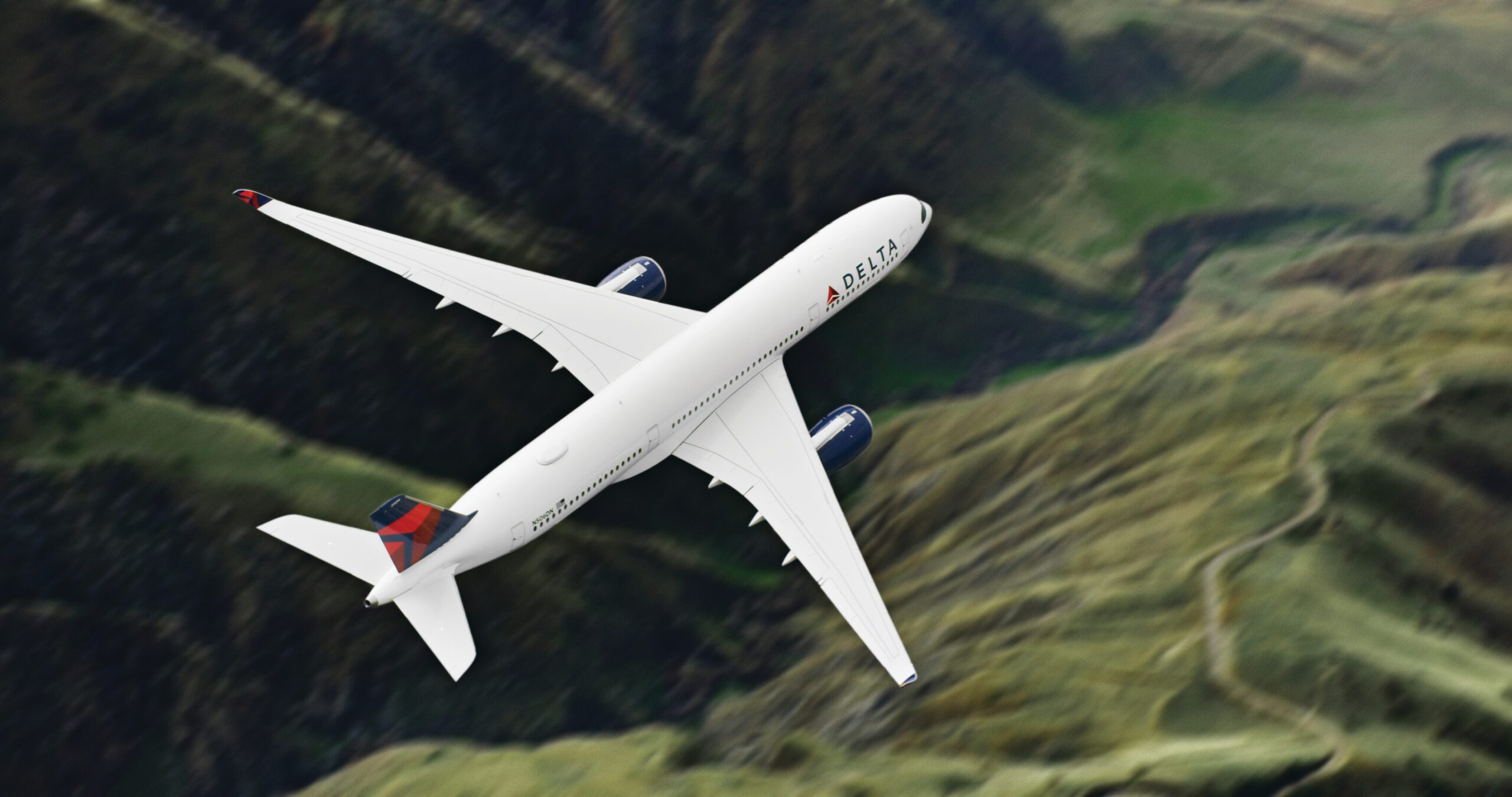
a350 900 sustainability category explainer scaled
Delta Air Lines’ 2023 got off to a strong start, which helped the airline to reduce the net loss by 61 percent year on year. Bookings were strong in the March quarter and continue to look good for Q2 as well, which should produce record revenues. For the full year, Delta is bullish about revenue growth, it said on April 13. Yet, a strong start in 2023 for Delta actually disappoints investors.
Delta ended Q1 with a net loss of $-363 million compared to $-940 million in the same period of last year. Total revenues were $12.759 billion, up from $9.348 billion. Passenger revenues were up 51 percent to $10.411 billion from $6.907 billion, thanks to strong demand. Domestic travel generated the most revenues at $7.6 billion, but the Transatlantic market performed also well and was up 131 percent year on year to $1.2 billion, ahead of Latin America at $1.1 billion, and the Pacific at $441 million.
Premium products continued to outpace the main cabin and at $4.0 billion contributed 56 percent of adjusted revenues. The SkyMiles loyalty program and partnership with American Express contributed strongly, with loyalty revenues “driven by strong co-brand acquisitions and spend growth, with American Express remuneration for the March quarter a record $1.7 billion, approximately 38 percent higher year over year.” However, cargo revenues were down to $209 million versus $289 million in the same period last year.
Salary costs twenty percent up
On the downside, operating expenses were 29 percent higher to $13 billion. The fuel bill was up by 28 percent to $2.7 billion, despite lower overall fuel prices during the quarter. Salaries were 20 percent up year on year to $3.4 billion, reflecting what CEO Ed Bastian said are “well-deserved pay increases for our people.”
The additional costs mean that Delta’s revenues were up ‘only’ fourteen percent over 2019 versus the guidance of between fourteen and seventeen percent in January, which disappointed analysts and investors and pushed shares down today. The operating loss in Q1 was $-277 million, an improvement from $-783 million. Adjusted operating cash flow was a Q1 record of $2.9 billion. Including gross capital expenditures of $1.1 billion, free cash flow was $1.9 billion. For the full year of 2022, Delta reported a $1.3 billion profit.
The first quarter, which usually is the weakest of the year, confirmed that Delta has almost fully recovered from the pandemic. Advance bookings were almost twenty percent up on 2019, total revenues per available seat miles (TRASM) were sixteen percent up on 2019, and 23 percent up on 2022. Not just premium products sell well, Delta is also seeing that small and medium business bookings have fully recovered from the pandemic. Domestic Corporate revenues are at 85 percent, and international corporate revenues are at ninety percent of 2019 levels.
The positive trend is set to continue this quarter, with forward bookings already strong and revenues expected to be fifteen to seventeen percent. Capacity, which was two percentage points behind expectations in Q1 partly caused by weather events, should increase by seventeen percent in Q2 over last year. This is still slightly below the previously anticipated full recovery as Delta takes a prudent approach to capacity due to new aircraft delivery delays, aircraft availability, ATC staffing issues, and the supply chain.
Changing travel patterns
Despite strong consumer demand, Delta is seeing that “travel patterns are changing and shifting a little bit more than they did pre-pandemic. We had a lot of stability pre-pandemic and we are adjusting to what I would call a new normal. We need to see where that exactly lands over time. This meant in Q1 that materialization rates (book to flown ratios) went actually down, which can probably be attributed to the flexibility to change flights without fees,” said President Glen Hauenstein. Delta responded with slight overbookings. Booking trends are also very much close in, within thirty days, but Delta is confident about the summer without getting over-excited.
For the June quarter, Delta actually expects to deliver record revenues of $14.2 to $14.4 billion, and an adjusted operating margin of 14 to 16 percent with earnings per share of $2.00 to $2.25. “With solid March quarter profitability and a strong outlook for the June quarter, we are confident in our full-year guidance for revenue growth of 15 to 20 percent year over year, earnings of $5 to $6 per share, and free cash flow of over $2 billion,” Bastian said.
“For the June quarter, we expect non-fuel unit costs to be 1 to 3 percent higher year over year,” said CFO Dan Janki. “We remain confident in our ability to deliver unit cost declines in the second half of 2023 while generating industry-leading operating margins of 10 to 12 percent for the full year.”
Delta ended the quarter with $9.5 billion in liquidity, including $2.9 billion as an undrawn facility. Net debt was reduced by $1.3 billion to $21 billion.
Delta has reactivated almost all aircraft that had been in storage since 2020. The carrier took delivery of six new aircraft in Q1, including four Airbus A321neo’s. The carrier has firm orders for 322 aircraft, including 130 A321neo’s, 100 MAX 10s, 59 A220-300s, seventeen A330-900s, and sixteen A350-900s.
Views: 4



